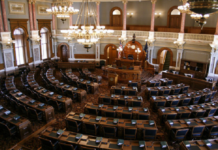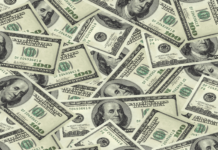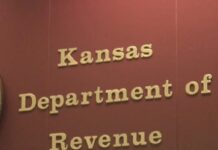Even the sponsor acknowledged it would be a struggle at best.
But Democratic state Rep. Tim Hodge of North Newton gave it a go, pitching a package of bills that would have cut the state sales tax on food but would have raised hundreds of millions of dollars in new taxes.
The bills are unlikely to go far after about 90 minutes of hearings Monday afternoon, but here’s a look at what Hodge was proposing:
- Cutting the state sales tax on food in half, to 3.25 percent from 6.5 percent. Cost to the state was estimated at $194 million.
- Creating a new income tax bracket for joint filers earning more than $1 million and individuals making more than $500,000. Estimated to bring in $307.9 million.
- Levying a 10 percent tax on corporate profits of more than $1 million. Estimated to bring in $296 million.
- Increasing the sales tax on vehicles worth more than $100,000 to 13 percent from 6.5 percent. It would bring in an estimated $2.5 million to the state.
Hodge argued that his measures were a way to fund important taxpayer services such as education and roads without putting the burden on the working class.
“We’re having to dig ourselves out of an economic mess, and the burden of that is being placed on working Kansans, and the super wealthy continue to enjoy tax breaks,” Hodge said after the hearing.
Opponents argued that the bills would hurt the state’s economy and dampen job creation. They compared it to essentially putting out a “Not welcome” sign on the state line.
“This will only lead to long-term economic stagnation,” Kansas Policy Institute President David Trabert told the committee.
Did Hodge expect his bills to go anywhere?
“You’re not going to get real reform until you change the makeup of this place through elections,” Hodge said. “Are these people more scared of their donors or their voters?”
Republican state Rep. Steve Johnson, tax committee chairman, said he didn’t foresee this set of tax bills advancing.
“I don’t know that there’s a huge appetite for tax reform again,” he said. “This was a pretty big jump, and that leap is a lot harder to make than, perhaps, a smaller shift.”















